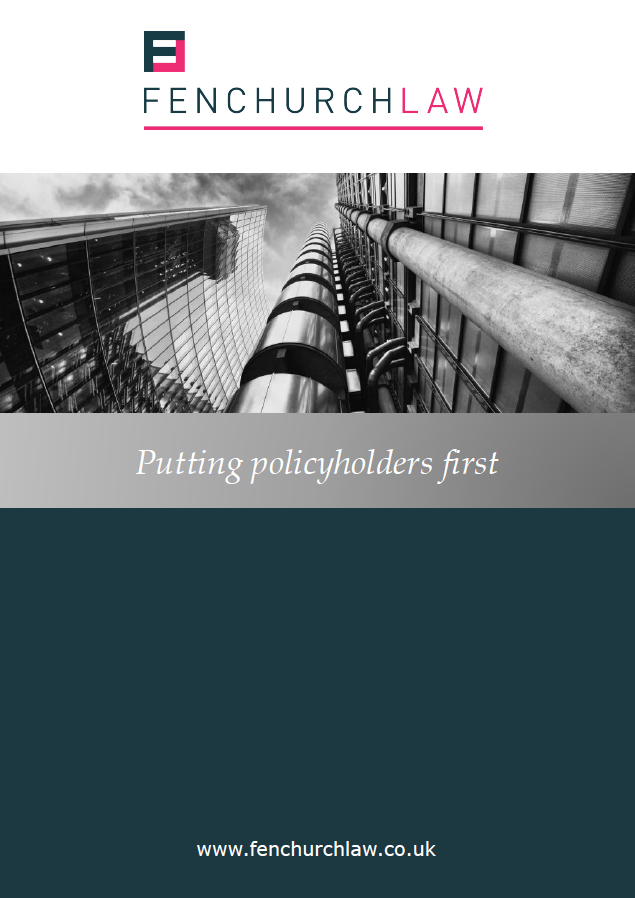
Covid-19 BI Update: Coronavirus, the plague of the 21st Century? Apparently not.
Rockliffe Hall Limited v Travelers Insurance Company Limited [2021] EWHC 412 (Comm)
On 25 February 2021, Mrs Justice Cockerill handed down judgment in the latest Covid-19 BI coverage dispute to come before the Courts. The case was brought against Travellers Insurance Company Limited over a dispute as to the interpretation of the Disease Clause extension of the Policy and whether it would extend to cover Covid-19 losses.
Mrs Justice Cockerill found in favour of the insurer, granting an application to strike out the claim brought by the owners of Rockliffe Hall Limited, a 5-star hotel and resort in County Durham, which like many businesses across the country was forced to close during the pandemic.
The parties’ arguments focused on wording of the Infectious Disease extension to the Business Interruption Section of the Policy. The extension, like many others in use, contained a list of 34 specified diseases, which did not include Covid-19.
The wording and construction of many Business Interruption clauses have of course been considered in detail by the High Court and the Supreme Court in the Test Case brought by the FCA. They did not however, deal with the type of wording which is at the forefront of this dispute.
In this case, the insurer maintained that cover provided by the Disease Clause extends only to loss resulting from one of the 34 diseases specifically listed in the policy wordings. It stressed that this list is “closed and exhaustive” and as Covid-19 was not included on this list, losses resulting from Covid-19 would not be covered.
Rockliffe on the other hand argued that the disease wording was ambiguous as it contained a number of what it termed ‘General Diseases’, which are not attributable to specific causes or pathogens, one of which was “Plague”. The hotel contested the insurer’s position that the list was “closed and exhaustive”, arguing that the definitions of the ‘General Diseases’ should be read widely to include any disease bearing a reasonable similarity, such as Covid-19.
Rockliffe went on to argue that the term ‘Plague’ could have various meanings, one of which is “Any infectious disease which spreads rapidly and has a high mortality rate; an epidemic of such a disease.”
Mrs Justice Cockerill was not convinced. She applied the ordinary principles of construction, in considering what a reasonable reader would have understood the parties to have meant by the language used and concluded that it would be “fanciful in the extreme” to believe that a reasonable reader, would interpret the term “Plague” in that way.
Rockliffe also asserted that Covid-19 could be associated with or cause some of the more specific diseases included in the Disease Clause, such as meningitis and encephalitis as there is evidence of these conditions being associated with and or caused by Covid-19. Again, Justice Cockerill dismissed this argument as an “Alice in wonderland” approach.
The “contra proferentem” rule was also considered briefly, as it was introduced by Rockliffe, in respect of the meaning of the word “Plague” in the context of the Policy. Mrs Justice Cockerill refused to apply the principle as there was no ambiguity, which serves as a useful reminder that the Courts will not invoke the “contra proferentem” rule in the absence of any genuine ambiguity.
The end of the Covid-19 pandemic may be in sight but the subsequent impact and unanswered questions over coverage are likely to linger for some time. Whilst a negative outcome for the policyholder in this case, every judgment that deals with the interpretation of policy wording, assists policyholders and insurers alike as it clarifies the position on these issues and provides consistency.
This case is one example of an issue that has been the subject of some debate over the past year, but is now settled conclusively.
Serena Mills is an Associate at Fenchurch Law.
Other news
Commercial Court grounds War Risks insurers in landmark Russian aircraft judgment
30 June 2025
Please find a link to the judgment here - Russian Aircraft Lessor Policy Claims [2025] EWHC 1430 (Comm) Introduction On…
You may also be interested in:
Archives
Categories
- Newsletter
- Events
- Webinars
- Comparing German and English Insurance Law – A Series
- Construction Risks
- Operations
- Business Development
- Construction & Property Risks
- News
- International Risks
- Legislation
- Financial & Professional Risks
- Case Law
- Professional Risks
- Press Release
- Uncategorized
- The Good, the Bad and the Ugly
- Fenchurch Law Webinars
- Stonegate



